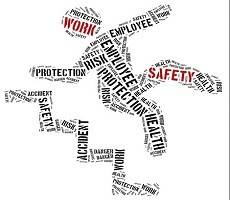September 4, 2016
Bisley release details of The Workification of Home event 0
 On 14th September, Bisley is hosting a panel discussion at its showroom led by Professor Jeremy Myerson of the Royal Academy of Art. The event is called The Workification of Home – the future trend for the flexible workforce? Jeremy will be joined by a panel of experts to debate the blurring boundaries between our domestic and professional lives, the rise of the freelance economy, tech start ups, mobile technology and the trend for co-working, The panel will debate how these factors have penetrated the culture, design and expectation of where, when and how we want to work and how workers can manage and maintain a successful work/life blend, by creating effective and conducive spaces in the home. Joining Jeremy are: Kirstin Furber – People Director at BBC Worldwide; Sebastian Conran- Leading product and furniture designer; David Barrett – Buyer of Living, Dining and Home office at John Lewis; Amelia Coward – Founder and Creative Director at Bombus.com. The event takes place at 6pm on the 14th September at the Bisley Showroom, Great Portland Street, London.
On 14th September, Bisley is hosting a panel discussion at its showroom led by Professor Jeremy Myerson of the Royal Academy of Art. The event is called The Workification of Home – the future trend for the flexible workforce? Jeremy will be joined by a panel of experts to debate the blurring boundaries between our domestic and professional lives, the rise of the freelance economy, tech start ups, mobile technology and the trend for co-working, The panel will debate how these factors have penetrated the culture, design and expectation of where, when and how we want to work and how workers can manage and maintain a successful work/life blend, by creating effective and conducive spaces in the home. Joining Jeremy are: Kirstin Furber – People Director at BBC Worldwide; Sebastian Conran- Leading product and furniture designer; David Barrett – Buyer of Living, Dining and Home office at John Lewis; Amelia Coward – Founder and Creative Director at Bombus.com. The event takes place at 6pm on the 14th September at the Bisley Showroom, Great Portland Street, London.






















 As regular readers are no doubt aware, normally we don’t comment on the reports and surveys we publish, instead leaving people to form their own opinions. However,
As regular readers are no doubt aware, normally we don’t comment on the reports and surveys we publish, instead leaving people to form their own opinions. However, 
















September 5, 2016
We’re only just beginning to understand the issue of indoor air quality 0
by Paul McLaughlin • Cities, Comment, Facilities management, Wellbeing
More →